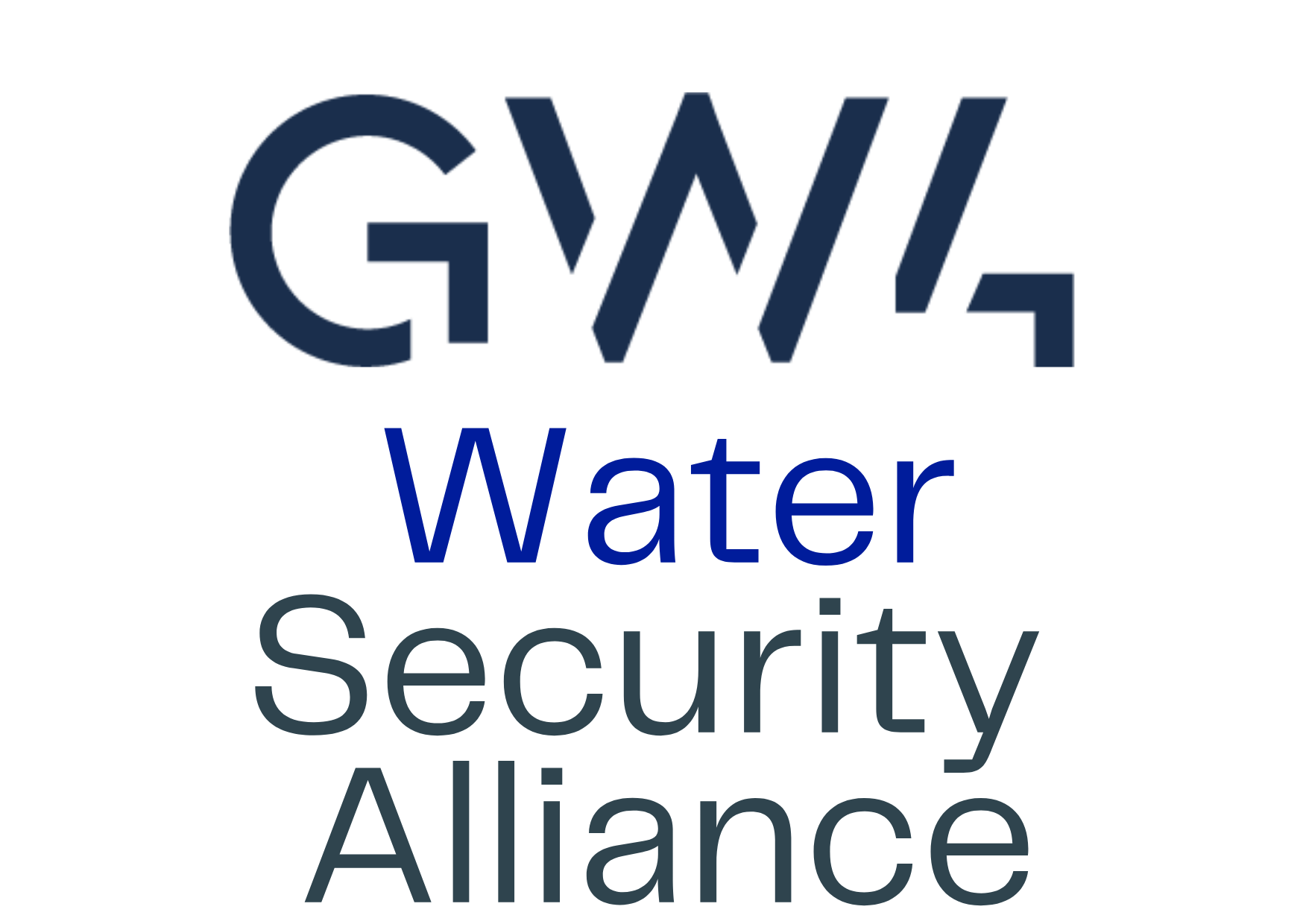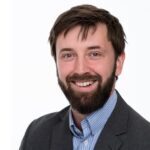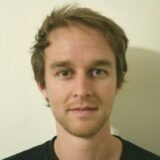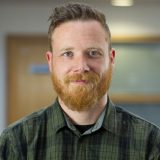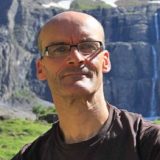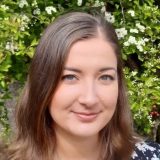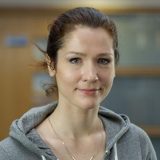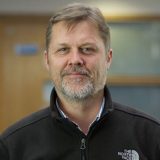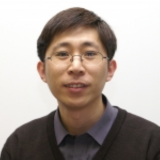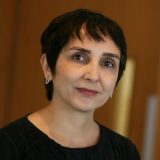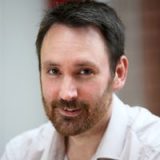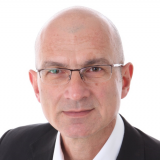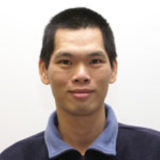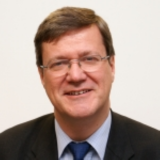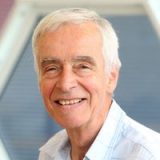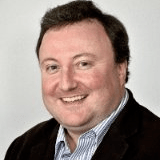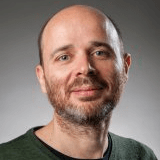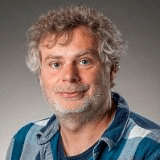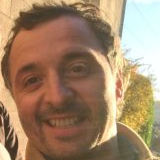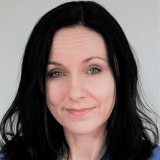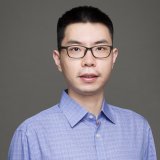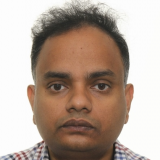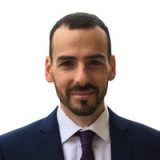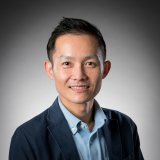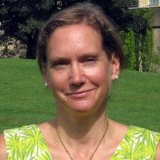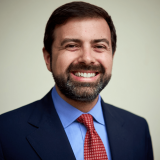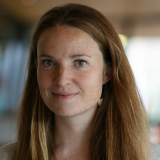Dr Peter Melville-Shreeve has worked in consultancy, startups and academic roles over the last decade. He works closely with the Chartered Institution of Water and Environmental Management’s (CIWEM’s) policy team to support sustainable water management systems and chair’s CIWEM’s Water Reuse Task & Finishing Group. Much of Peter’s early research focusses on rainwater management systems and the need for dual purpose designs – which can mitigate droughts and floods. His thesis highlighted the opportunities for Internet of Things technologies to be harnessed to reduce water demand AND manage stormwater flood risk. He consequently founded and exited a technology business which developed analytics and control systems to enable such technologies to be implemented at a range of scales.
Rich Crane
Rich’s key research and teaching areas are extractive metallurgy, materials science, nanotechnology and applied geochemistry for a range of applications including the development of novel mining techniques, mine site reclamation, waste treatment, water treatment and contaminant transport.
More information on Rich’s institutional profile
Gabriel Yvon-Durocher
Gabriel researches the effects of environmental change on the structure and functioning of ecosystems (which comprise groups of species, their interactions with one another and with the physical and chemical environment in which they exist). His work spans multiple levels of biological organisation, from sub-cellular biochemistry to the dynamics of ecosystems, and searches for similarities across aquatic and terrestrial systems. The ultimate goal of his work is to develop a predictive ‘tool box’ to forecast how ecosystems will change in a world increasingly dominated by humans and the oceans.
Michiel vos
Michiel combines approaches from microbiology, evolutionary ecology and population genomics to study bacterial evolution, focusing on horizontal gene transfer, sociomicrobiology and pathogens in the environment. Key projects include exploring the ecological drivers of antimicrobial resistance and virulence in aquatic bacteria.
Rod Wilson
Rod is a comparative physiologist. He aims to provide a more holistic understanding of homeostasis in aquatic animals, both fish and invertebrates, freshwater and marine. This includes studies of how anthropogenic and natural environmental changes impact upon physiology and behaviour in the wild, and how to use physiology to help improve the sustainability of aquaculture (including animal growth efficiency and health, pathogen/parasite resistance, and farm effluent output). He also studies the reverse process: how physiological processes in aquatic animals can influence the regional and global environment in freshwater and the oceans.
Charles tyler
Charles is a reproductive physiologist and environmental biologist. His research interests include mechanisms of endocrine disrupting chemicals and nanoparticle ecotoxicology and assessing population level effects of contaminants in wildlife (primarily fish).
Aimee Murray
Aimee’s research area is antimicrobial resistance in the environment, particularly due to anthropogenic impacts in wastewater and receiving environments. This includes evolution and ecology of antimicrobial resistance, direct selection at low concentrations and co-selection by other antimicrobials and non-antimicrobial compounds, environmental risk assessment, and developing and validating the novel ‘SELECT’ method for rapid determination of selective concentrations of antibiotics and environmental surveillance of antimicrobial resistance. She has a long-standing collaboration with AstraZeneca and engaging with industry and policy makers.
anne leonard
Anne’s research focuses on marine systems and epidemiology. She studies catchment-level processes contributing to the transmission of antibiotic resistant bacteria in coastal bathing waters, with a view to identifying mitigation strategies to reduce the spread of antibiotic resistant bacteria in the environment. She is particularly interested in recreational waters, transmission in coastal bathing waters and microbial genes associated with land uses and re-use of water and crop irrigation.
will gaze
Will research is in antimicrobial resistance in farmed and natural environments, including major elements of environmental sampling and wide-ranging analytical methodologies. This includes AMR evolution in the environment, using in situ and in vivo experiments, landscape scale dissemination of AMR and human exposure and transmission studies. Projects are divided into three main themes: ecology, evolution and public health perspectives. These map onto those identified in successive WHO, EU and UK AMR action plans facilitating interdisciplinary research approaches and joined up thinking.
Guangtao Fu
Guangtao’s research is focused on developing and applying new computer models, data analytics and artificial intelligence tools to tackle urban water challenges in water supply resilience, network leakage, flood risk, urban stormwater and wastewater management.
Raziyeh Farmani
Raziyeh specialises in urban water systems modelling, water resources management and asset management and has expertise in multi-objective optimisation of water networks. Her research interests covers evolutionary optimisation, artificial intelligence and data mining.
Devin Sapsford
Devin’s research focuses on minewater treatment technologies; recovery of metals from waste and biogeochemistry.
Slobodan Djordjevic
Slobodan researches the development and application of advanced methodologies and software tools for water management. These include: drainage and floods simulation, impacts of flooding, effects on human health and impacts on road transportation, resilience to diverse extreme weather events in the context of climate change, tidal energy extraction, water quality modelling, river and coastal engineering, water-food-energy nexus, cascading effects between water, waste, energy, transportation and other infrastructure systems, nature-based solutions, and drought risk management.
Albert Chen
Albert’s research focuses on water and human environment systems. Particular focus is on: hydraulic modelling, urban drainage, flood forecasting, innovation technology applications, water-food-energy-ecosystems nexus, climate change impact on critical infrastructure, prediction of water-borne disease, hazard impact and cascading effects assessment, and mitigation and resilience strategies.
DAVID BUTLER
David’s research area is urban water management, including sustainable and resilient water systems, integration and control and water-energy-carbon interactions.
Peter Randerson
Peter’s research covers pollutant removal and nutrient recovery from effluents and waste water (biofiltration), using constructed wetland systems and the production of biomass crops.
Tom Arnot
Tom’s research falls into two main areas: the first is sustainable water and waste water treatment, and the second is novel drug delivery systems for healthcare and food applications.
Pedro Estrela
Pedro’s research focuses on the development of label-free electrical biosensors and chemical sensors for a wide range of applications such as medical diagnostics and environmental monitoring. His research interests include label-free electrical detection of biomolecular interactions, biologically sensitive field-effect devices, detection of DNA, proteins, bacteria, cells, ions and small molecules, electrochemical impedance spectroscopy of biological systems, use of solid state devices in aqueous environments, surface biofunctionalization, electronic addressing of microarrays, nanobiosensors and microfluidics.
Edward Feil
My research interests lie in using sequence data to study bacterial pathogens, both from a point of view of managing infections (molecular epidemiology) but also in terms of understanding fundamental evolutionary dynamics.
Benedek Plosz
Benedek’s research interests include assessing the fate of trace organic chemicals in urban water systems (pharma, drug biomarkers), computational fluid dynamics of bioengineered water systems, and biogeochemical used-water resource recovery.
Barbara Kasprzyk-Hordern
Barbara’s research focuses on environmental pollution, environmental epidemiology, water quality/water treatment and analytical chemistry. Barbara is particularly interested in water pollution and novel technologies used to decrease contamination of water. Recent interests are related to urban water and human epidemiology.
Andrew Weightman
Andrew’s research includes work on microbiomes, microbes and informatics.
Junjie Shen
Junjie works on contaminant removal, capacitive deionisation and water treatment systems.
Sangaralingam Ahilan
Sangaralingam’s main interests are in sustainable urban flood risk management and the long-term performance of sustainable drainage systems, using detailed hydrological and hydro-morphodynamic modelling. He is also analysed SME behaviour in flooding aftermath.
Alberto Roldan Martinez
Alberto’s research is based on computer simulation linking materials composition and atomic structure to the reactivity of relevance to chemistry and sustainable industry. He is particularly interested in the recovery and utilisation of chemicals in wastewaters.
John Chew
John’s research focuses on green cleaning (fouling and cleaning of surface layers in the food, textile, polymer processing, membranes and biotechnological industries). John works on the design and development of multi-functional adsorbent structures for air purification. John also studies the hydrodynamics and interfacial interactions of small scaled fluid particles with their continuous phase during the course of their movements in a piece of equipment (in processes such as wastewater treatment, fermentation and surface cleaning).
Jan Hofman
Jan’s research focuses on sustainable solutions in the water cycle, sustainable water management, and water security. Jan also studies the origin, fate and abatement options for emerging contaminants, thermal energy recovery from water and wastewater and resource recovery from wastewater and water treatment residuals. Finally, Jan’s work involves water demand and sewer modelling and water treatment.
Emma Emanuelsson Patterson
Emma analyses, optimises and designs chemical, biochemical and photocatalytic reactions and reactors. Her work combines in-situ reaction analysis techniques with traditional reaction investigation methodologies and mathematical analysis. In combination with reactor design, this allows for the development of novel and environmentally sustainable processes. Emma’s research includes 3D printing to develop an efficient, portable and low-cost continuous system for the treatment of contaminated drinking water. Emma also works in the optimisation of immobilisation protocols; investigation of reaction kinetics both experimentally and theoretically; reaction design and application of microbial tools (such as fluorescence in-situ hybridisation) applicable to wastewater treatment, food and the chemical and pharmaceutical industries.
Davide Mattia
Davide works in the application of membrane science – increasing their lifetime, reducing fouling, 3D membranes, chemical treatment and plant shutdowns. Davide’s research also focuses on the novel water treatment in waste and drinking water, e.g. photo-catalytic foams – a tertiary treatment to remove emerging contaminants (drugs etc). Finally, Davide studies the use of cellulose micro-beads to replace plastic in treatment systems.
Kate Baker
Based in the Centre for Water Systems, Kate is the lead for community engagement on two European Union funded projects, NextGen (Living Labs for Circular Economy in the Water Sector) and LOTUS (International Cooperation for Low-cost innovative Technology for water quality monitoring and water resources management for Urban and rural water Systems in India).
